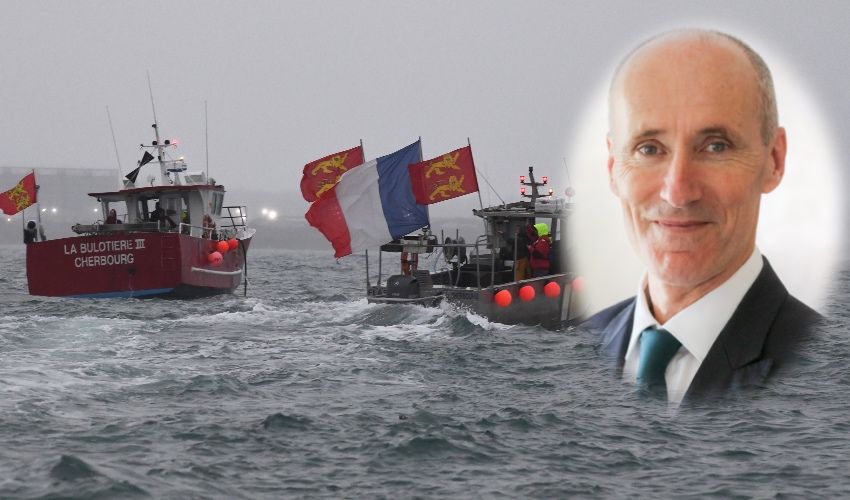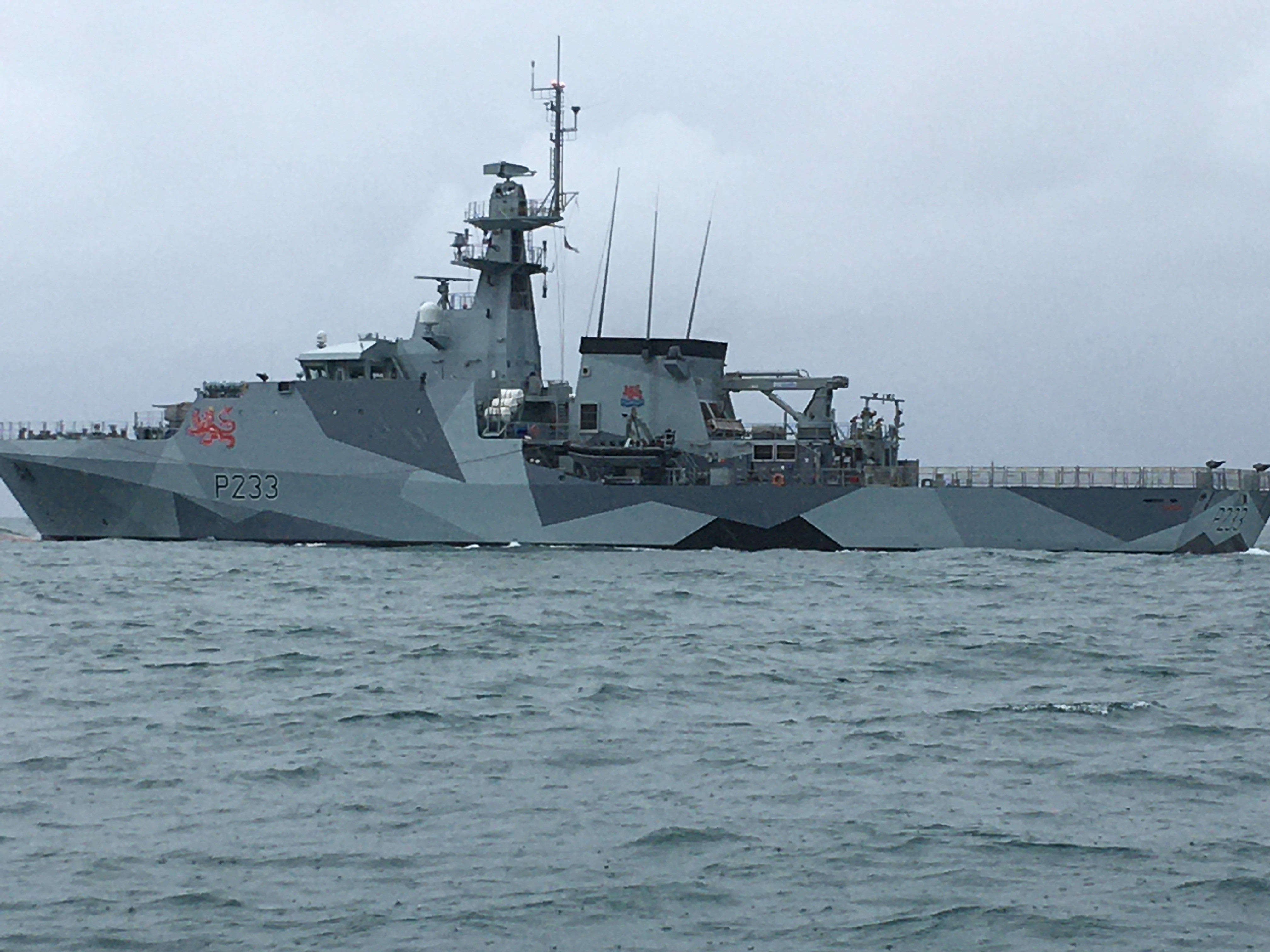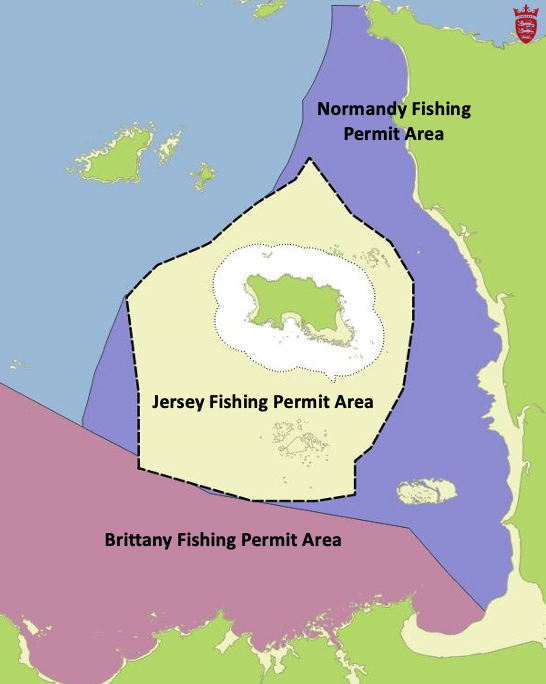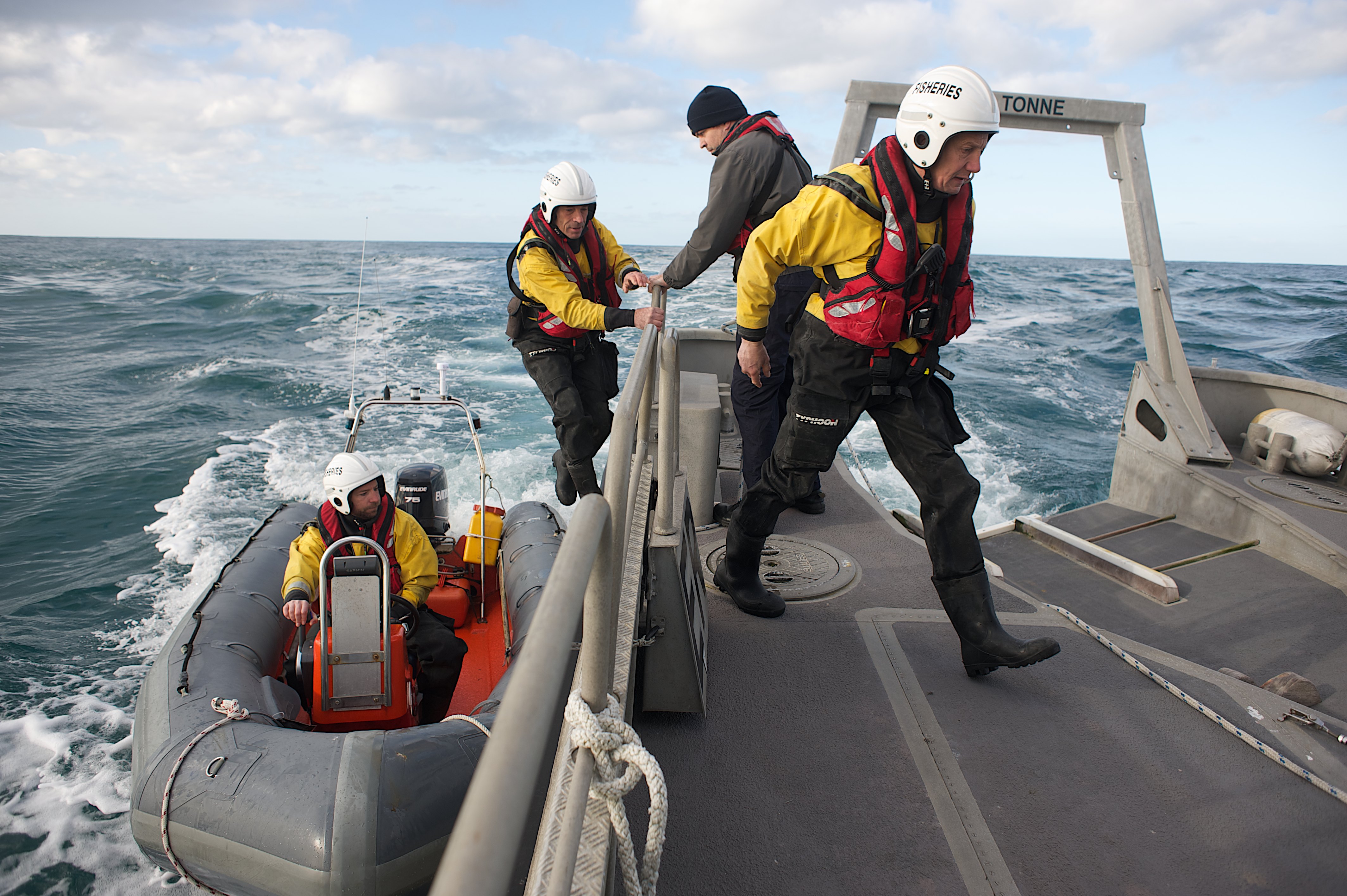


Jersey does not expect a repeat performance this week of events in May 2021, when a fleet of French fishing boats protested outside of the Harbour, attracting worldwide media coverage.
Tomorrow (Wednesday 1 February), Jersey will apply conditions to the licences of 136 Norman and Breton fishers who are allowed to fish in the island’s territorial waters.
These conditions will determine the ‘nature and extent’ of their fishing activity - in essence, determining what they can catch, where and when.
It was the attempted application of these conditions in 2021 which prompted the French fleet to sail to Jersey in protest - and saw two Navy vessels deployed to local waters in support.

Pictured: HMS Tamar, along with HMS Severn, were dispatched to Jersey to monitor events on the morning of Thursday 6 May 2021.
Two years on, Environment Minister Jonathan Renouf said he expected the licence conditions to be accepted by French fishers on 1 February without the hostility and acrimony that accompanied the first attempt.
He said: “I am reasonably confident that the introduction of ‘nature and extent’ will not result in a negative reaction, like we saw two years ago.
“The difference is we have engaged in a very intensive round of discussions, not only at a high level with the EU but also informally with the fishing committees in Brittany and Normandy to keep them in the loop.

Pictured: Post-Brexit, Jersey has full control of its entire territorial waters for the first time (Source: Marine Resources Dept).
“We have also received feedback from them, so have a much better understanding of their position. And they understand our position too.
“We are not receiving any signals that something is going to blow up.”
The fishing dispute erupted in May 2021 after Jersey sent out licences, with conditions attached, to French fishers. The ‘nature and extent’ of their permitted activities was based on criteria set out in a post-Brexit trade deal signed between the UK and EU.
Jersey said it was confident that it was following the agreement to the letter - with conditions needing to be based on fishing activity carried out in a qualification period between 2017 and 2020 - however, it could only draft them on scant information supplied by the EU.
Since then, Jersey is optimistic that it has the qualification data it needs on the 136 licensees. It is also confident that the EU and French fishers know that the conditions are on their way.
The island is further assured that they won’t come as a shock, because the conditions mirror the limitations that were set under the old Bay of Granville Agreement, which was a shared-management arrangement which established the rules between 2004 and 2020.
In short, the fishers should know what to expect because they had the same conditions before Brexit, which were set by their own authorities.

Pictured: Jersey fisheries officers will board boats that they suspect are fishing illegally.
Jersey also says it has taken a ‘no surprises’ approach and has negotiated extensively with the UK, France, EU and Guernsey, which is applying its own conditions.
Jersey adds that it will take a ‘sensitive and pragmatic’ approach to fishers who may be unhappy with their licence conditions.
The old Bay of Granville agreement fell away when the UK left the EU on 1 January 2021.
For the first time, Jersey now has full control of its territorial waters, with the Environment Minister empowered to give permits to qualifying EU vessels.
The trade agreement also gives the Minister the ability to vary the conditions to protect fish stocks and marine habitats, providing that it is based on scientific evidence and applied fairly to both EU/French and Jersey boats.
The Government’s Marine Resources team says it is confident it has the resources, equipment and legislation to monitor and police fishing in Jersey.
It says that tracking beacons on each vessel not only reveals their location but also indicates what and how much is being caught.
Catch data must also be supplied to Jersey within 48 hours of returning to port.
Enforcement officers can also board vessels at any time to check on catches and equipment used, using the States’ Fisheries Vessel Norman Le Brocq and/or two rigid inflatable boats.
Comments
Comments on this story express the views of the commentator only, not Bailiwick Publishing. We are unable to guarantee the accuracy of any of those comments.